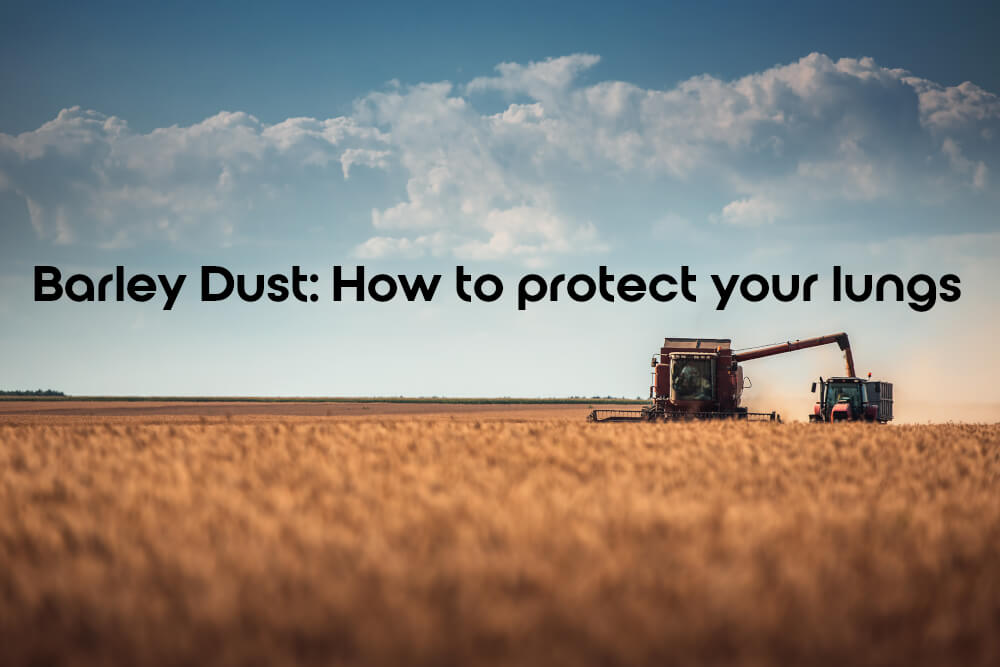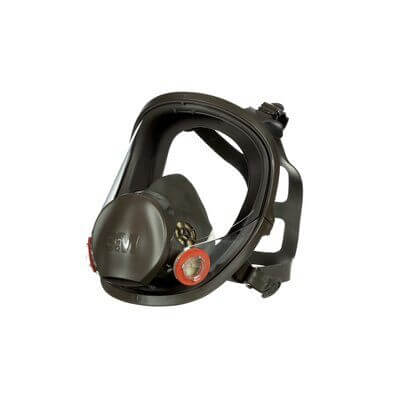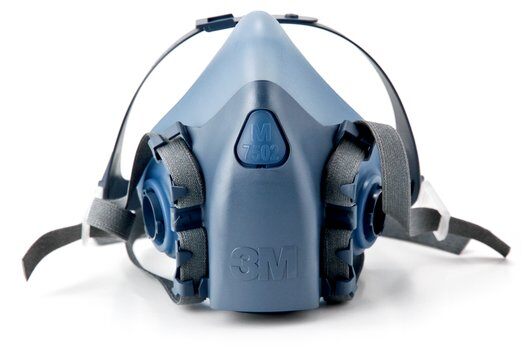Protecting the Health of UK Farmers: The Risks of Crushed Barley Dust and the Power of Effective Respiratory Protection
Posted by Sam Tucker on 7th Jul 2023
A Deep Dive into the Health Risks of Crushed Barley Dust and the Importance of Respiratory Protection
Unmasking the Hidden Hazards of Crushed Barley Dust
In the realm of farming, crushed barley dust is an often-underestimated peril. Seemingly harmless, this fine particulate matter, produced during the processing and handling of barley, poses a significant health risk to those working within the UK's agricultural sector.
Though crushed barley dust may appear as a mere nuisance, the impact of this airborne material on the body, particularly the respiratory system, is far from negligible. Frequent exposure can lead to various health complications, ranging from minor irritation of the throat and nose to severe respiratory conditions, including occupational asthma and even chronic obstructive pulmonary disease (COPD).

An Inside Look at the Respiratory Risks of Crushed Barley Dust
Impact on the Nose, Throat, and Upper Respiratory Tract
When inhaled, the tiny particles of crushed barley dust can irritate the sensitive lining of the nose and throat, leading to an uncomfortable sensation, itching, coughing, and potentially, a chronic condition called rhinitis.
Penetration into the Lungs
More seriously, crushed barley dust has the potential to penetrate deeper into the respiratory system, reaching the lungs. The continuous inhalation of this dust can trigger inflammation and scarring in lung tissue, leading to a severe and sometimes life-threatening condition known as farmer's lung or hypersensitivity pneumonitis.
In addition, chronic exposure to barley dust can also lead to the development of occupational asthma, a condition characterized by wheezing, chest tightness, shortness of breath, and persistent coughing. In some severe cases, barley dust can contribute to the onset of COPD, a long-term condition that causes difficulty in breathing.
The Path to Protection: Keeping Your Lungs and Respiratory System Safe

While the risks associated with crushed barley dust are significant, it is reassuring to know that there are practical and effective preventative measures available. For those working within environments where dust exposure is an unavoidable part of the job, respiratory protection becomes an essential line of defence.
Half Mask/Full Face Respirators: The Gold Standard in Respiratory Protection
Half mask or full face respirators are the most trusted and recommended solutions for combating the effects of crushed barley dust. These devices are specifically designed to filter out harmful particles and prevent them from entering the respiratory system. Using them reduces the risk of developing the respiratory issues discussed above and ensures the user's wellbeing even in high dust exposure environments.
At The Face Mask Store, Your Respiratory Health Is Our Concern
We understand the unique challenges that UK farmers face and we are dedicated to providing practical and effective solutions for these occupational hazards. To help you stay protected from the risks associated with crushed barley dust, we recommend using the 3M 2135 P3 R Particulate Filters in conjunction with the 3M 7500 Half Mask Reusable Respirator or the 3M 6800 Full Mask Respirator.
These products provide high-level filtration, covering the nose, mouth, and potentially the entire face, offering the most effective barrier against crushed barley dust. With comfortable fit and robust design, they can help you go about your daily tasks without the risk of compromising your respiratory health.
Frequently Asked Questions

1. Why is crushed barley dust harmful?
When inhaled, crushed barley dust can cause severe irritation to the nose and throat, leading to discomfort and potential chronic conditions. Long-term exposure can lead to serious lung diseases, such as occupational asthma and farmer's lung.
2. Are regular dust masks sufficient for protection against crushed barley dust?
Standard dust masks may not provide enough protection against crushed barley dust due to their limited filtration capabilities. We recommend using either a half mask or full face respirator with appropriate filters, such as the 3M 2135 P3 R Particulate Filters, for comprehensive protection.
3. Where can I find suitable respiratory protection equipment?
You can find a range of high-quality, effective respiratory protection equipment at The Face Mask Store. Visit us online here to explore our selection and choose the best protection for your needs.
Remember, protecting your respiratory health is not just about ensuring your comfort at work. It's about preserving your long-term health and wellbeing. So, take the necessary precautions and equip yourself with the right protection to ensure a safe and healthy working environment.






